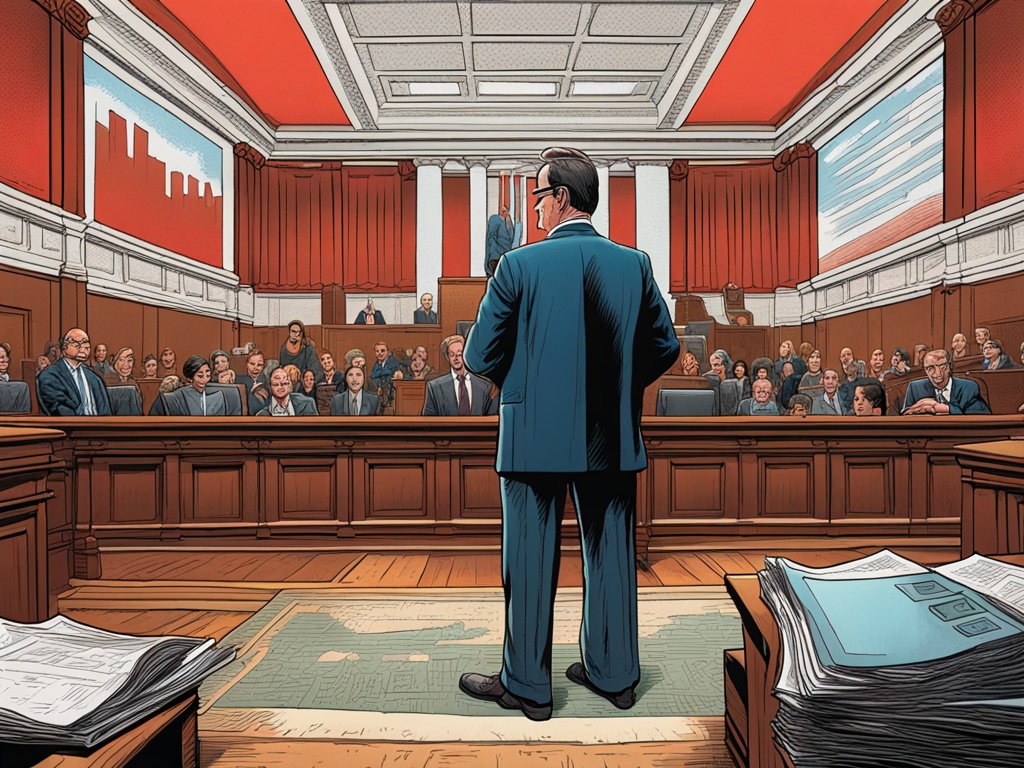Federal Judge Challenges FDIC on Crypto Redactions 🏛️
A U.S. federal judge has raised concerns about the extensive redactions made by the Federal Deposit Insurance Corporation (FDIC) in letters directing banks on cryptocurrency operations. This criticism is part of a Freedom of Information Act (FOIA) lawsuit initiated by Coinbase, highlighting potential issues with transparency and regulatory clarity surrounding the cryptocurrency sector.
Judge’s Concerns Regarding FDIC’s Conduct ⚖️
On December 12, Washington, DC District Court Judge Ana Reyes issued a text order expressing her apprehensions about the FDIC’s methodology in applying redactions in the aforementioned letters. She stated that the FDIC seemed to be lacking a “good-faith effort” in its approach, which she found troubling.
Judge Reyes articulated that the defendant cannot simply choose to obliterate every passage that isn’t a noun or verb. She demanded “more thoughtful redactions” and instructed the FDIC to submit revised versions of the letters by January 3. The judge emphasized that the FDIC would need to provide justifications for each redaction made, adding a layer of accountability to the process.
The controversial “pause letters” have ignited significant debate within the crypto community. These communications, which contain numerous redactions—sometimes entire pages—were sent to 23 banks, advising them to halt or limit their engagement with crypto services and products.
Paul Grewal, Coinbase’s Chief Legal Officer, pointedly questioned what the FDIC was attempting to conceal. He argued that these letters reinforced a long-standing narrative within the cryptocurrency sector suggesting that the Biden administration is actively working to restrict cryptocurrencies’ access to banking services, a strategy often labeled as “Operation Chokepoint 2.0.” Grewal had previously criticized the FDIC for employing excessive redactions in these documents.
Wider Implications of the Controversy 🔍
This fallout has occurred against the backdrop of potential regulatory transformations. Reports indicate that the advisory team of Donald Trump during his presidential transition discussed the possibility of merging or abolishing certain regulatory bodies, including the FDIC. They have also been considering modifications to the Office of the Comptroller of the Currency and the Federal Reserve.
The handling of these letters shines a light on the ongoing tension between regulatory bodies and cryptocurrency firms. The lack of transparency can hinder innovation and growth within the cryptocurrency domain, a sector that has been striving for more clarity and supportive regulatory frameworks.
Coinbase’s Strategic Financial Moves 💵
On another front, Coinbase appears to be gearing up for a strategic shift, as evidenced by recent remarks from Tom Duff Gordon, the company’s Vice President of International Policy. He highlighted that Coinbase is aiming to diversify its revenue sources. Additionally, the exchange’s ongoing financial strategies indicate their active participation in shaping the political landscape surrounding cryptocurrency.
In recent political contributions, the Winklevoss twins—Cameron and Tyler—have emerged as the largest individual contributors from the cryptocurrency space, contributing a remarkable $10.1 million. Moreover, notable figures from the industry, including Coinbase CEO Brian Armstrong, have also made substantial donations, exceeding $1.3 million to political action committees affiliated with both major parties.
In the light of the upcoming 2026 midterm elections, Coinbase has pledged a donation of $25 million to the super political action committee Fairshake. This move signifies the company’s commitment to supporting candidates who advocate for pro-crypto policies, indirectly reflecting the growing influence of cryptocurrency on political dynamics.
Hot Take: The Intersection of Regulation and Innovation 🌐
The unfolding situation reveals critical tensions between regulatory efforts and the burgeoning cryptocurrency sector. Judge Reyes’ instruction to the FDIC to reassess its redaction practices underscores a demand for greater transparency in a landscape often marred by uncertainty. As the regulatory environment continues to evolve, how agencies like the FDIC approach communications with financial institutions can have lasting impacts—not just on compliance, but on market confidence and innovation in the crypto space. This year, the outcomes of these disputes and regulatory explorations could significantly shift the trajectory of cryptocurrency’s integration into traditional finance.





 By
By
 By
By
 By
By
 By
By
 By
By